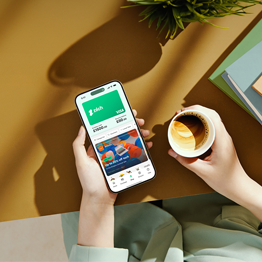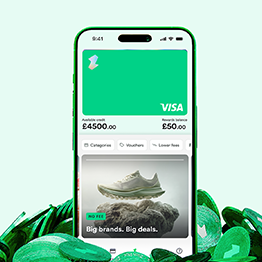What is impulse buying (and why does it happen)?
Impulse buying is when you make a purchase on the spot, without planning or thinking it through. It’s usually driven by emotions, not needs.
You might recognise it by:
- Spontaneity – buying in the moment
- Emotional triggers – stress, boredom, excitement
- FOMO or urgency – limited-time offers or ‘last chance’ messaging
- Instant gratification – chasing a feel-good moment, not long-term value
It’s normal to treat yourself now and then. But that quick buzz can fade fast – leaving behind regret and a dent in your finances.
Find your personal spending triggers
To stop impulse spending, you first need to understand what’s behind it. Some common triggers include:
- Stress or anxiety
- Boredom or procrastination
- Social media and influencer culture
- Sales and limited-time offers
Tip: Take a few minutes to reflect on your recent impulse buys. Ask yourself:
- What was happening that day?
- How was I feeling?
- Did I actually need that thing?
Understanding your own patterns makes it easier to shift them.
Track your spending – so you can spot the patterns
If you want to cut down on impulse spending, start keeping tabs on your purchases. It’s like holding up a mirror to your money habits.
Try one of these:
- Use a budgeting app
- Track everything in a spreadsheet
- Keep a handwritten expense log or journal
Want to go deeper? Try journalling after each purchase:
- What did I buy?
- Why did I buy it?
- How was I feeling at the time?
This kind of self-check-in makes it easier to spot emotional spending and interrupt the habit next time.
Smart strategies to stop impulse spending in its tracks
Once you’ve nailed down your triggers, you can start putting the right tools in place. Here are some simple strategies that actually work:
Use the 24-hour rule
If something catches your eye, don’t hit “buy” right away. Wait 24 hours. This gives your brain time to cool off and decide if the item is really worth it.
Make a list – and stick to it
Whether you’re heading to the shops or browsing online, always go in with a list. It helps you stay focused and avoid falling for distractions or flashy deals.
Avoid tempting spaces
If emails, apps or ads are your weak spots, do a digital detox:
- Unsubscribe from promo emails
- Delete (or hide) shopping apps
- Mute accounts that trigger spending on social media
Less temptation = fewer unplanned purchases.
Use the “Need vs. Want” filter
Before you buy, pause and ask: Do I need this or do I just want it?
- Needs: Essentials for daily life (groceries, rent, bills)
- Wants: Fun extras (designer trainers, nights out, gadgets)
No shame in treating yourself, but being honest about which is which helps you stay grounded.
Set a “fun money” budget
Give yourself a set amount each month for non-essentials. That way, you can enjoy life without guilt or overspending.
Build better habits – one choice at a time
Impulse spending doesn’t disappear overnight. But with a mix of self-awareness, smart habits and consistency, you can take charge of your money.
Here’s how to keep building momentum:
- Track your spending regularly
- Reflect on the why behind each purchase
- Stick to your lists and limits
- Celebrate the wins – even skipping one impulse buy is a big deal
Over time, making spending decisions that match your goals gets easier – and they’ll feel good long after checkout.
Need a bit of support while you build those habits?
With Zilch, you can split bigger purchases into smaller, manageable payments – helping you stay in control while avoiding high-interest credit. Whether it’s over 6 weeks or 3 months – or earning Rewards with Pay now – Zilch gives you more ways to spend smarter.





